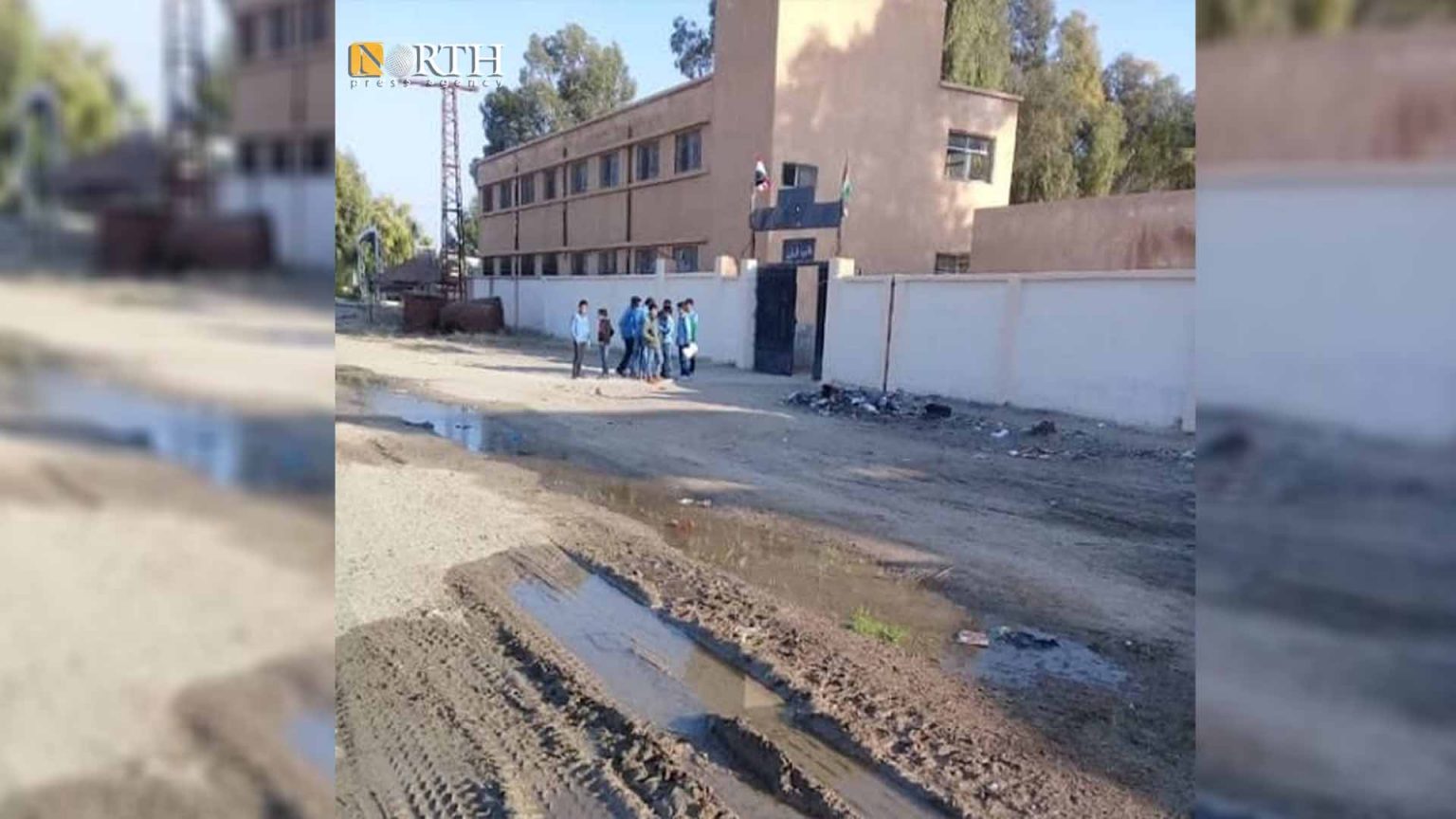DEIR EZ-ZOR, Syria (North Press) – Taym Saleh, 25, a pseudonym for a young woman living with her parents in the government-held town of Qoriya, 60 km east of Deir ez-Zor, eastern Syria, is pregnant and is concerned about the fate of her baby as the husband does not recognize his baby for unknown reason.
The father pushed Saleh to marry a member of the Iranian-backed Quds Force for a fixed time of three months in exchange for 200,000 SYP ($50), Saleh said.
The father, a gardener in a farm owned by Shiite people, was greed to gain profits and awards by the Shiite people and to satisfy leaders of Shiite factions, according to Saleh.
Temporary marriage (Arabic: nikah mut’ah) is common in Deir ez-Zor city in the areas where the government forces are in control. According to the “temporary marriage”, Syrian girls of Deir ez-Zor marry members of Iranian-backed militias for a definite sum of money.
Temporary marriage is an ancient Shiite practice that unites man and woman as husband and wife for a limited time and a limited sum of money. However, the Suni Islamic jurisprudence (Fiqh) prohibited it.
The majority of the men and women who apply the temporary marriage are leaders or members of Iranian factions, workers in Shiite farms, and civilians with close relations to Shiite members, according to the residents of Deir ez-Zor.
Since the beginning of 2021, 25 cases of temporary marriage has been recorded with a fixed-term of three months, according to civil activists in Deir ez-Zor.
Forced to temporary marriage
Syrian government forces and the Iranian factions control the western parts of the Euphrates river starting from Deir ez-Zor to Abu Kamal in the far east of Deir ez-Zor.
Iranian-backed militias penetrated in the countryside of Deir ez-Zor as soon as they controlled the city and its countryside in the west of the Euphrates river in 2017 after battles with members of the Islamic State (ISIS).
Following enhancing their presence in the area, the Iranian-backed militias lured the sons of the region to Shiism. Most of the mosques were transferred to places of Shiism so to implement an agenda aiming to divide the social cohesion be means of willing or intimidation, according to the residents.
The people of Deir ez-Zor are concerned Iran continue to stretch in the area and change the population structure by introducing different traditions and habits and encouraging the people to temporary marriage.
Ali Saleh, 63, moved to another area in Deir ez-Zor, which is controlled by the Syrian Democratic Forces (SDF), in order to evade criticism from the neighbors and relatives given his son, a member of the Iranian-backed militias, has married more than one girl in accordance with the temporary marriage.
“My relatives and people of my hometown no longer respect me because my son married more than one girl according to the temporary marriage. He used to threaten me to accept his marriage for several times. I have no power to prevent him,” he said.
Saleh added that families of the girls cannot refuse the marriage proposals unless the girl’s father has great influence amongst the factions. Every father who refuses to let his daughter marry a member of Iranian-backed militias is doomed to be jailed and humiliated.
The majority cases of temporary marriage take place “reluctantly” without the approval of the girls themselves. Families of the girls agree on marriage in order to get some money as the economic situation in Syria is very difficult. Sometimes, the amount of money paid in the temporary marriage reached 350,000 SYP ($85).
Contrary to traditions and habits
Temporary marriage, approved by the Shiite jurisprudence based in Deir ez-Zor, arouse panic and fear amongst the population since it is a strange and alien phenomenon and is totally contrary to the traditions and habits of the Islamic Sunni jurisprudence.
It should be mentioned that the majority of the Syrian population are Sunni people.
The first case of temporary marriage took place two years ago. A 16-year-old girl from Jorah neighborhood got married to an Afghani man, a member of Fatemiyoun faction, for 150,000 SYP with a fixed term of five months.
Father of the girl was Sunni but he joined Iranian-backed factions and transformed his faith to Shiism to get high positions and extra money.
Hadla al-Atwan, 50, refuses to return to her hometown in Abu Kamal as she is concerned her daughters would be forced to marry in accordance with the new alien traditions imposed by Iranian-backed militias without any supervision.
Al-Atwan displaced as Iran’s militias expelled her from her home located in the security zone in Abu Kamal.
Al-Atwan pointed out that there are other reasons that pushed her to displace. She said she was fearful her daughters would be lured to visit the Shiite shrines and indulge in the Shiite traditions.
Al-Atwan has lived in Sha’fa town in the east of Deir ez-Zor. Her husband was arrested by Iranian-backed militias and his fate is still unknown.
Al-Atwan lives with her three daughters. The eldest is 25 years old and the youngest is 17. She has also two other children.
“I was afraid members of the faction would force one of my daughters to temporary marriage which contradicts our beliefs and norms.”

